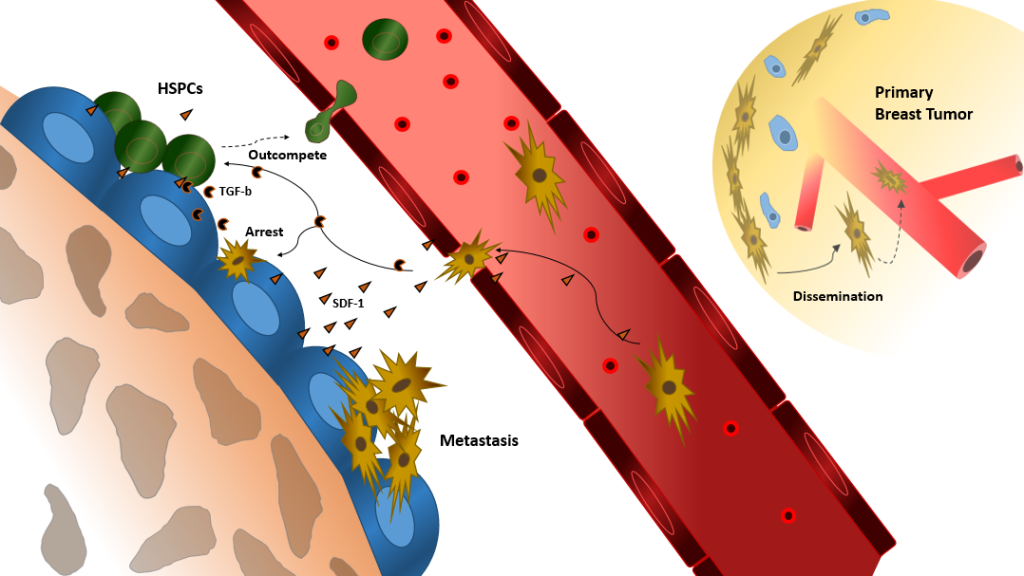Modulation of the hematopoietic stem cell niche by micrometastases
Micrometastases of solid tumors like breast and prostate cancer have a predisposition to metastasize early to the bone marrow were they encounter the microenvironment of the hematopoietic stem cell niche. The molecular basis for the functional interaction between tumor cells with the cellular components of the bone marrow niche, e.g. hematopoietic stem and progenitor cells (HSPCs) as well as mesenchymal stromal cells (MSCs) remains only partially understood. Therefore, we investigate whether MSC and HSC are influenced in their genetic profile and function by disseminated tumor cells (DTCs).
The SDF-1/CXCR4 axis plays important roles for homing and release of hematopoietic stem and progenitor cells (HSPCs) to and from the bone marrow. DTCs have been shown to respond to similar chemotactic signals. We could demonstrate the modulation of SDF-1 secretion by MSCs and thereby an impaired chemoattraction of HSPCs. This may lead to mobilisation of HSPCs resulting in increased levels of clonogenic HSPCs observed in patients with untreated breast cancer. Breast tumor cell lines out-compete HSPCs for the binding to MSCs and attach to the stromal layer with a higher binding force. Moreover, tumor cells decrease osteoblastic differentiation of MSCs and expression of melanoma cell adhesion molecule (MCAM) on MSCs is essential for their osteoblastic differentiation and HSPC support in vitro.
Participating group members:
Martin Bornhaeuser, Manja Wobus, Abhishek Dhawan, Katrin Mueller, Kristin Heidel
